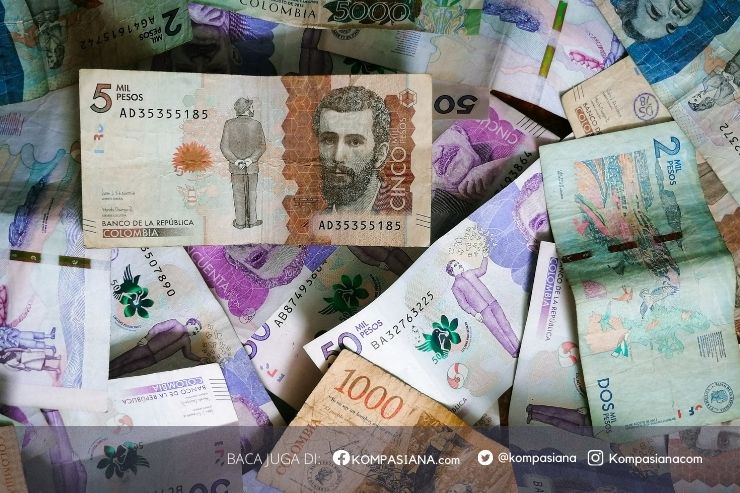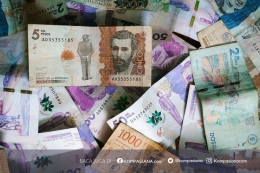Under the premiership of Alex Tsipras, Greece’s economy is going nowhere. Until now, Greece’s debt has reached 180.2% of its GDP. According to IMF (International Monetary Fund), Greece needs an additional €60 billion euros to sustain their economy, while they have more than €300 billion in debt. Not only that, they need at least €7 billion to avoid a default on July 20. If they are not careful with this, the phenomenon of Grexit will finally be happened.
What will happen if Greece remains in this current state? I am quite sure that Greece economy will not become in a better condition inside or outside the Euro. But, it can be even worse, if they do not receive the fund from Troika. Until now, Greece still need additional euro to let their bank sustain, when their economy is in the brink of bankruptcy. Even if they agree on the bailout, bank may need as much as €10 billion just to stay in business. It is truly hard for Greece to sustain their economy!
Stay or outside the Euro will bring a dilemma towards their economy. If they stay in Euro, they have to take their bitter pill in sustaining their economy by the fund from Troika. Skepticism from their own people towards government policy will hamper their own government to get the heart of their own people. If no, Greece has to take several measures in preventing their economy in a worse state. The second option needs a better preparation in handling this –five years may not be enough for Greece, if they are ready to go out from Euro.
When I analyze on Greece crisis, I am reminded me Indonesia’s experience during the 1998 Asian Financial Crisis. In that time, IMF states that the external debt of Indonesia reach 129% of its GDP. Compared with Greece, Greece is even worse. Taking from Indonesia’s experience, I argue that Greece should take the bailout in sustaining their economy.
Indonesia can become a suitable example for Greece in sustaining their economy. In that time, Indonesia should take bitter pills, which deteriorate the society’s confidence towards their own economy. In that time, IMF demanded some fundamental financial reform measures: the closure of 16 privately-owned banks, the winding down of food and energy subsidies, and it advised the Bank Indonesia to raise interest rates. Executing this policy for Indonesia is not easy. The closure of the 16 banks triggered a run on other banks, when it restricts the bank’s ability to lend and forcing the BI to provide large credits to the remaining banks to avert a complete banking crisis. In order to maintain the investor’s confidence, Indonesia should receive the bailout.
Until this point, playing with Troika in the red line will only bring Greece’s economy in a worse state. Greece is no longer can play its card, if they provoke the anger from the Troika. Playing with cards to Troika will not guarantee the EU that Greece’s economy in the healthier state. Greece should show its commitment to follow the Troika’s game, while they negotiate some term of condition in saving their economy, while their economy cannot work like never before.The same case also applied to Greece, when they have been forced by Troika to follow their requirement. Learning from Indonesia experiences, I believe that Greece should consider taking this bailout as soon as possible. It is already proven that Greece cannot sustain its economy in the current state, which can be shown when investors choose to take their investment out from Greece. Yet, Greece still needs Troika –the European Commission, the International Monetary Fund and the European Central Bank in saving their economy, when Greece does not have a competitive sector that can sustain its economy. The situation that Greece faces now is not even better than Indonesia in the 1998 Asian Financial Crisis. It strengthens my point that Greece should receive its bailout, because their condition is not even better than Indonesia.
After Indonesia received the bailout from IMF, Indonesia can maintain its economy growth until 4%, lowering its inflation and stabling Indonesia’s economy. Still, bailout becomes a main weapon in saving the economy of one country during crisis. If Indonesia can sustain its crisis with bailout, Greece also can save its economy right now in the short-term.
Despite the bailout policy always bring controversies to the society and affect our economic in the long term, receiving bailout is necessary in the short-term in rolling back their economy.
Greece should learn from Indonesia’s experience. Greece has to accept the bailout policy as soon as possible.
Sources:
https://www.imf.org/external/np/exr/ib/2000/062300.htm#box3
http://www.indonesia-investments.com/culture/economy/asian-financial-crisis/item246
Baca konten-konten menarik Kompasiana langsung dari smartphone kamu. Follow channel WhatsApp Kompasiana sekarang di sini: https://whatsapp.com/channel/0029VaYjYaL4Spk7WflFYJ2H








